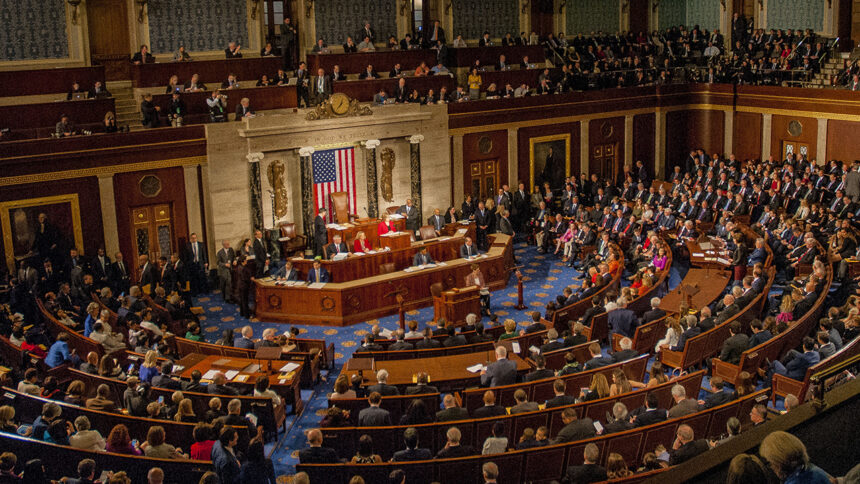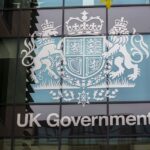The United States Congress has initiated a full-scale probe into the mass killings in Nigeria after multiple lawmakers raised alarm over an alleged Christian genocide.
The U.S House of Representatives will begin hearing and consideration of the Nigeria Religious Freedom Accountability Act of 2025, which proposes sanctions against Nigerian officials deemed responsible for the unchecked violence against Christian communities.
The probe follows the recent decision by U.S President Donald Trump to revive Nigeria’s designation as a “Country of Particular Concern” (CPC), a status previously lifted in 2021.
Congressman Riley M. Moore introduced the resolution before the House, condemning the “alleged Christian genocide”, citing statistics that purportedly position Nigeria as the deadliest place in the world for Christians.
The CPC designation, if ratified by the Senate, would allow the U.S to impose sanctions on Nigerian officials found complicit in religious persecution and limit certain forms of bilateral assistance.
A breakdown of the line-up of activities by the U.S Congress shows that a hearing has been scheduled for Thursday, November 20, 2025, at 11:00 am in Room 2172 of the Rayburn House Office Building and available via live webcast.
The hearing will be chaired by Representative Chris Smith (R-NJ).
It was also gathered that the hearing will feature two panels of witnesses, including senior U.S State Department officials and Nigerian religious leaders.
An invite has already been sent to Nigerian government officials, Christian leaders, and others over the “alleged Christian genocide.”
The invite to the members of the Committee on Foreign Affairs reads: “You are respectfully requested to attend an open hearing of the Committee on Foreign Affairs to be held by the Subcommittee on Africa at 11:00 a.m. in Room 2172 of the Rayburn House Office Building.”
According to the invite, panelists will include Senior Bureau Official of the Bureau of African Affairs, Jonathan Pratt, and Deputy Assistant Secretary of the Bureau of Democracy, Human Rights, and Labor, Jacob McGee.
The second panel will feature the Director of the Centre for Religious Freedom, Ms Nina Shea; Bishop Wilfred Anagbe of Makurdi Catholic Diocese in Nigeria; and Ms Oge Onubogu of the Centre for Strategic & International Studies.
The congressional hearing is expected to review not only the scope of religious persecution and killings in Nigeria, but also potential policy responses, including targeted sanctions, humanitarian assistance, and collaboration with Nigerian authorities to prevent further violence.
This development comes after President Bola Tinubu, in what was described as a bid to restore peace and foster inter-communal harmony in Plateau State, dispatched an emissary, Dr Abiodun Essiet, to the state last Thursday.
Essiet, a Senior Special Assistant on Community Engagement in the North Central Zone, met Christian clerics and Fulani Miyetti Allah community leaders.
She also paid a courtesy visit to the Chairman of the Regional Church Council in Barkin Ladi, Rev. Ezekiel Dachomo, who has been a voice of Christian communities in the state.
According to a statement by the Special Adviser to the President (Information & Strategy), Bayo Onanuga, Essiet also held a closed-door meeting with the Irigwe community, the Miyetti Allah group, and representatives from the Youth Council of Bassa Local Government Area.
Essiet said the President remained committed to peace and inclusive governance, noting that the community-based peace structure served as a key instrument for grassroots unity, dialogue, and long-term stability in the North Central region.
Recall that on October 31, 2025, Trump designated Nigeria a ‘’Country of Particular Concern’’ for religious freedom violations and mass killings in Nigeria.
Trump’s move immediately ignited debates across Nigeria over the possibility of U.S intervention.
In designating Nigeria as a Country of Particular Concern, Trump cited alleged severe violations of religious freedom, particularly the persecution of Christians.
He claimed that Christianity is facing an existential threat in Nigeria, with thousands of Christians being killed by radical Islamists.
Trump warned that the U.S would take action, including potential military intervention, if Nigeria did not address the issue.
The U.S President also threatened to halt all aid and assistance to Nigeria should President Bola Tinubu’s administration fail to end the alleged persecution and killing of Christians
“If the Nigerian Government continues to allow the killing of Christians, the USA will immediately stop all aid and assistance to Nigeria, and may very well go into that now-disgraced country, ‘guns-a-blazing,’ to completely wipe out the Islamic terrorists who are committing these horrible atrocities.
“I am hereby instructing our Department of War to prepare for possible action. If we attack, it will be fast, vicious, and sweet, just like the terrorist thugs attack our cherished Christians,” he said on November 1, 2025.
Tinubu, however, described the claim as a misrepresentation of Nigeria’s religious reality.
‘’Nigeria stands firmly as a democracy governed by constitutional guarantees of religious liberty. The characterisation of Nigeria as religiously intolerant does not reflect our national reality.
“Religious freedom and tolerance have been a core tenet of our collective identity and shall always remain so. Nigeria opposes religious persecution and does not encourage it,” Tinubu said.





